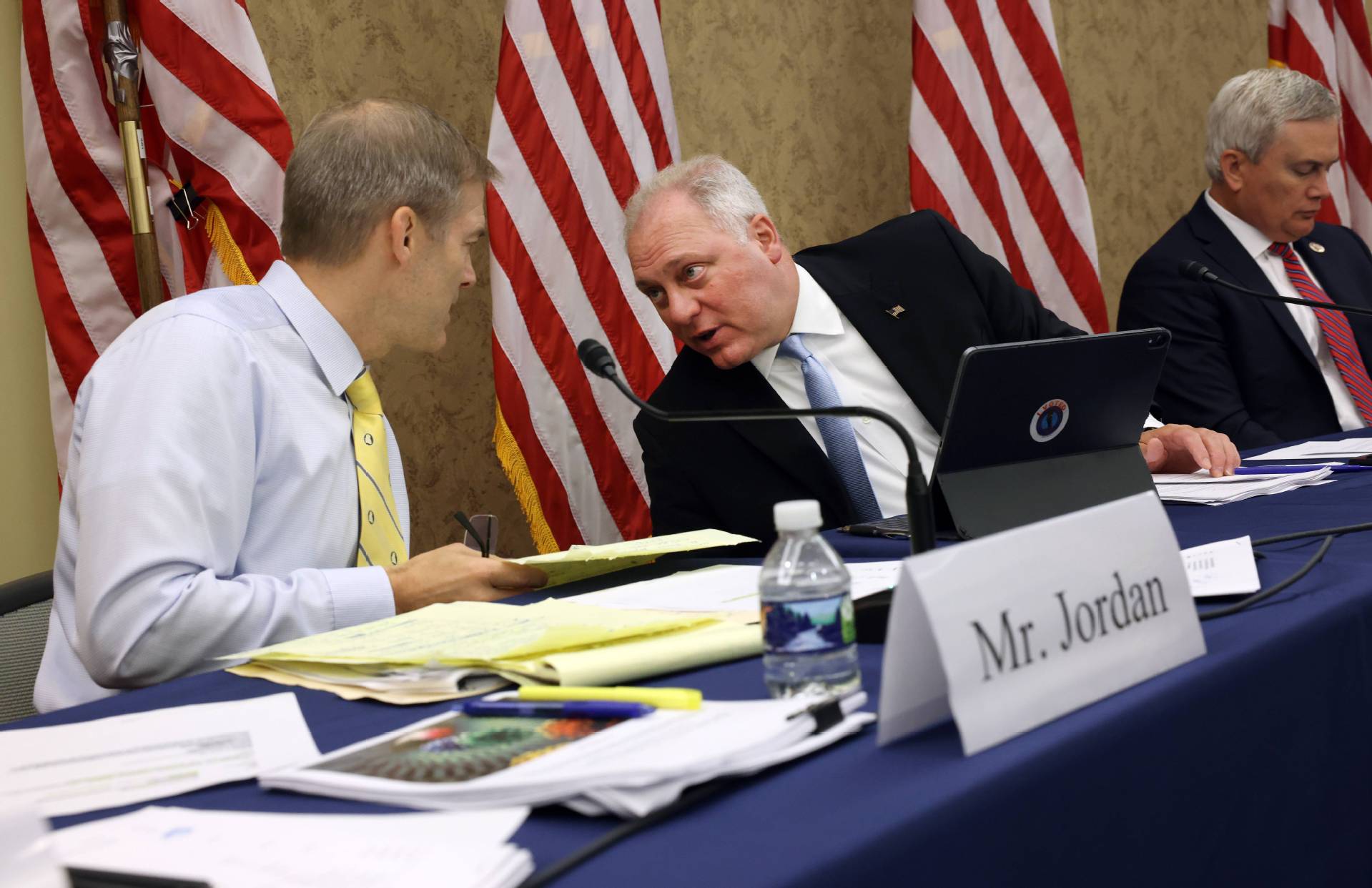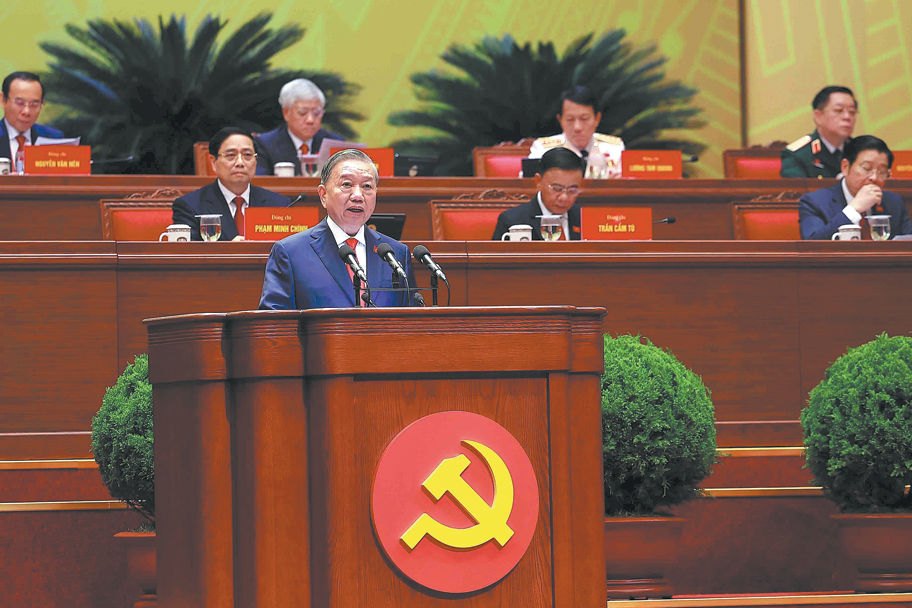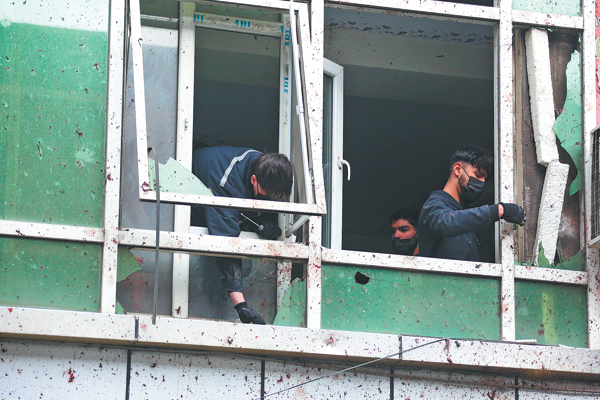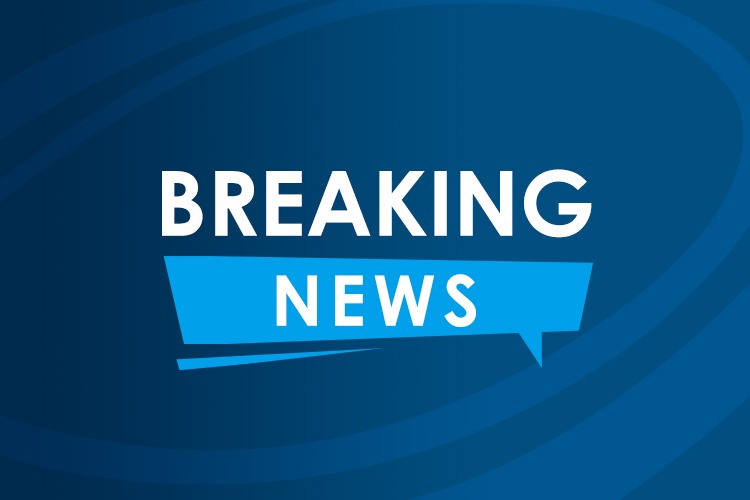Politicians told to stay out of virus origins debate

Evidence points to earlier appearance of COVID-19 than first thought

A former ambassador of Singapore to the United Nations has called for the origin-tracing efforts of COVID-19 to expand beyond China as the origins of the global health crisis remain contested by experts.
"The United States should declare that it is willing to give World Health Organization teams access to its facilities," Kishore Mahbubani, a distinguished fellow at the Asia Research Institute of the National University of Singapore, was quoted by Global Times as saying. "In that way the US will set an example for others to follow.
"Recently, I watched an interview with a Dutch member of the WHO team that went to China. She said on the BBC that if the Biden administration has new evidence on the origins of the virus, it should share that evidence."
The hypothesis that the coronavirus originated in China and suggestions of a laboratory leak remain contested by experts.
Many scientists say the virus is likely to have evolved and jumped from animals to humans naturally. A joint WHO-China investigation earlier this year found transmission of the virus to human through an intermediate animal was the likely cause and that a laboratory leak was "extremely unlikely".
After conducting a genetic analysis of COVID-19 viral samples pulled from a giant global database, researchers in Britain found that it would be impossible to find the first patient in any country, CNN reported.
"All these ideas about trying to find a Patient Zero are pointless because there are so many patient zeros," CNN quoted Francois Balloux, a genetics researcher at University College London Genetics Institute, as saying in May last year.
Balloux and colleagues took viral samples of more than 7,600 patients worldwide. Their findings support suspicions that the virus was infecting people in Europe, the US and elsewhere weeks or even months before the first official cases were reported in January and February last year.
In a paper published on July 19, scientists at the Istituto Nazionale dei Tumori, a cancer research center in Milan, Italy, discovered traces of infection after retesting a small number of pre-pandemic blood samples.
The samples, collected as early as October 2019 in Italy, have re-stoked debate over whether the coronavirus was circulating in Europe before Chinese authorities reported the first human cases in Wuhan in December 2019, according to the Financial Times.
"If this is confirmed, this would explain the explosion of symptomatic cases observed in Italy (in 2020)," the paper quoted Giovanni Apolone, one of the researchers, as saying. "SARS-CoV-2, or an earlier version, circulated silently, under the surface."
Michael Melham, mayor of Belleville, a township in New Jersey, told NorthJersey news site in April last year that he had tested positive for coronavirus antibodies and that he believed he contracted the virus in November 2019, more than a month before the first cases of the disease were reported in China.
An antibody testing study by the National Institutes of Health published on July 15 confirms that the coronavirus was quietly circulating in the US before the country's first publicized case was known in January.
Researchers analyzed more than 24,000 stored blood samples from participants across all 50 states between Jan 2 and March 18 last year and detected antibodies against SARS-CoV-2 infections from nine participants in Illinois, Massachusetts, Mississippi, Pennsylvania and Wisconsin, from as early as Jan 7.
Since antibodies do not appear until about two weeks after a person has been infected, the results indicate that the participants with the antibodies were exposed to the virus at least several weeks before their sample was taken, the NIH news release said.
Mahbubani, the Singaporean scholar, argued that every country should agree to allow WHO teams to visit and assess their facilities, so as to enhance the international organization's credibility.
"It's not fair to say that China should allow access, and other countries should not allow access. Therefore, the US should declare that it is willing to allow WHO teams to access any facilities in the country. In that way the US will set an example for others to follow."
Mahbubani counseled against politicizing over debate the origins of the coronavirus and suggested that it is dangerous for politicians to become involved in science.
"The one good thing about science is that scientific evidence cannot be tampered with by politicians. Therefore when it comes to scientific evidence, we should let the scientists deal with it."






























